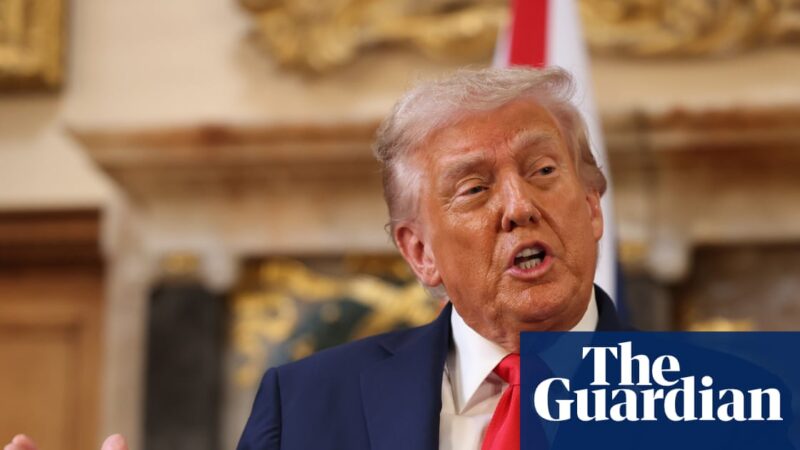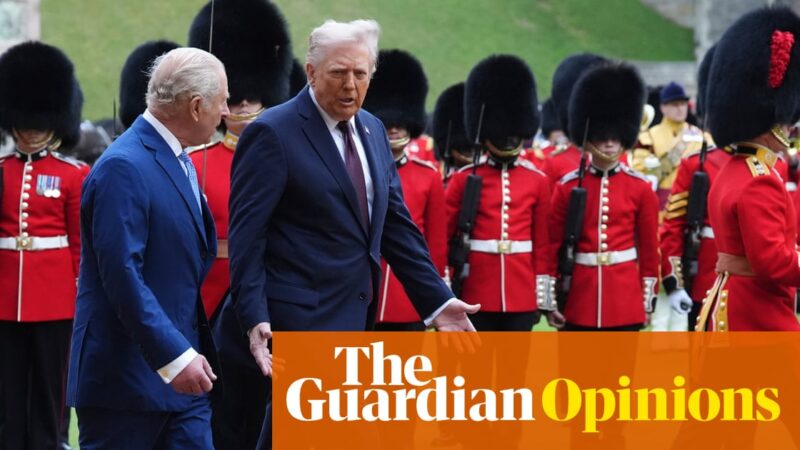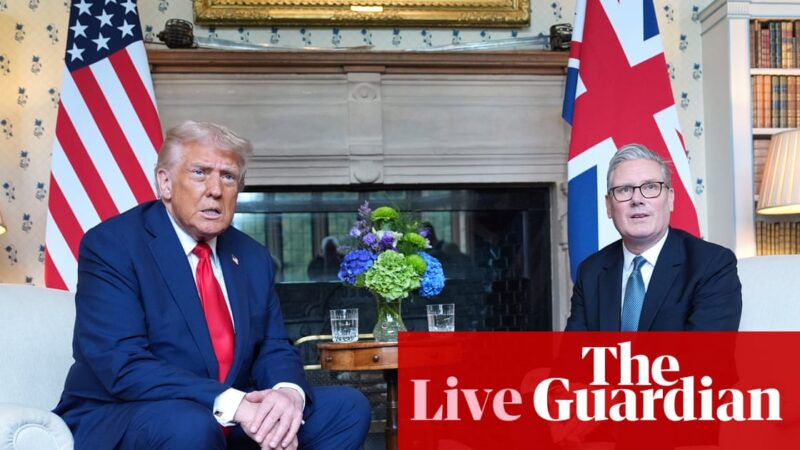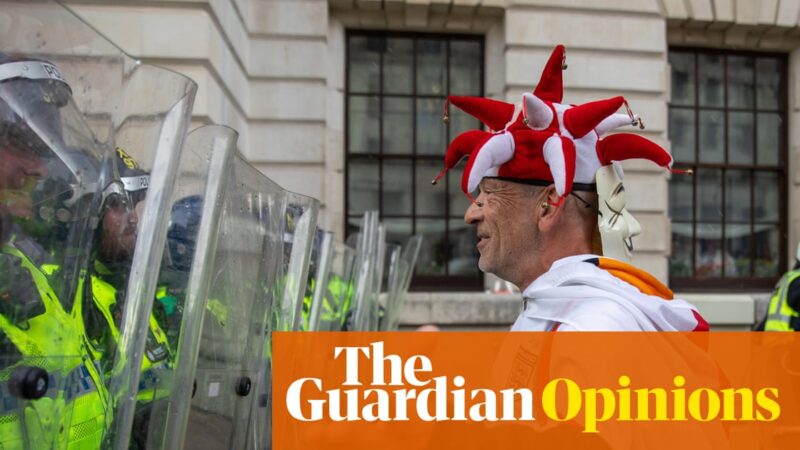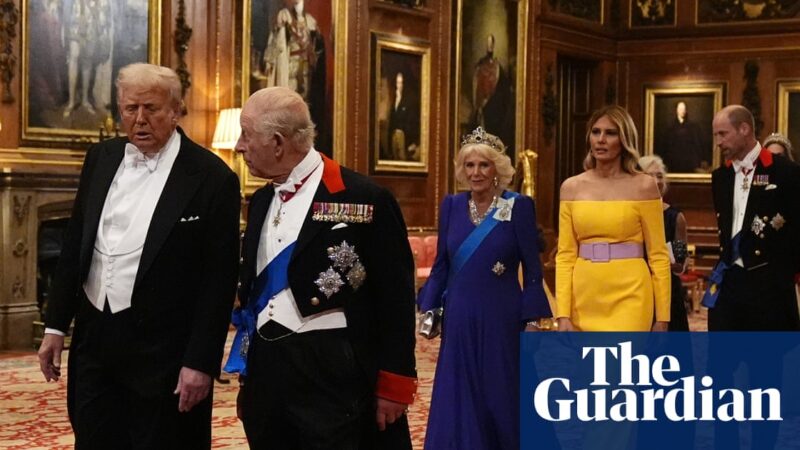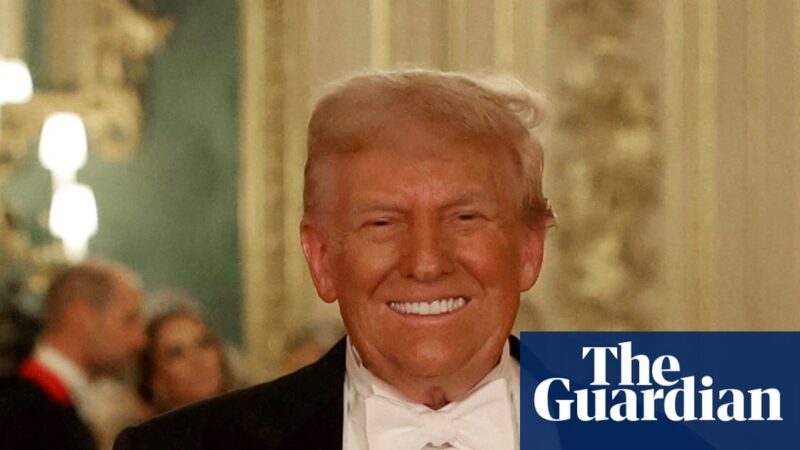The Guardian view on Trump’s state visit to Britain: plenty of glitter, but this was gilt, not gold | Editorial
An unprecedented second state visit for a US president. An “extra-large” guard of honour. The UK rolled out not only the red carpet, royal welcome and golden carriage but also the superlatives for Donald Trump’s visit. Sir Keir Starmer’s hyperbole on the memorandum of understanding on tech made his guest look almost understated: the prime minister boasted that the transatlantic partnership paved the way for new technologies to “amplify human potential, solve problems, cure diseases, make us richer and freer”.
Yet there was an inverse relationship between the pomp and ceremony of this trip and its real import, between the grand declarations of amity and the actual state of transatlantic ties. The US president soaked up the sycophancy and was obliging enough to hymn the “priceless” relationship. But while Mr Trump grumbled that Vladimir Putin had “really let me down”, he showed no inclination for tougher action against Russia despite Sir Keir’s preposterous remark that the US president had “led the way” on Ukraine and King Charles’s pointed reference – one that his mother might not, perhaps, have made – to Europe and its allies needing to stand together against tyranny.
US tariffs on British steel have not budged. The promised $150bn of investment by US tech firms in the next decade looks less impressive in the context of their global investment in infrastructure; Microsoft alone has pledged to spend $120bn on datacentres in the next year. As Nick Clegg, the former deputy prime minister and ex-Meta executive, accurately observed, the UK is a “vassal state technologically”. The government is relying on servicing American artificial intelligence firms rather than bolstering domestic innovation.
Sir Keir has earned far better reviews for his performance on the world stage than domestically. The international arena is perhaps all the more appealing when he is so embattled at home. Yet almost half of Britons thought it wrong for Mr Trump to receive this second state visit, and even a former Telegraph editor took to the streets in protest.
The arrest of four campaigners after an image of Mr Trump and the paedophile Jeffrey Epstein was beamed on to Windsor Castle – with an accompanying soundtrack questioning their relationship – was a grotesque misuse of the Malicious Communications Act to restrict protest. It was all the more galling when those around the president attack the UK’s supposed lack of free speech in curbing hateful disinformation and other dangerous materials. Giving Mr Trump a bespoke ministerial-style red box embossed with his initials was inconsequential, but a symbolically queasy choice given his willingness to meddle in other countries’ domestic policies. He publicly urged Sir Keir to extract more fossil fuels and suggested using the army to counter illegal migration.
But in the world of President Trump, a diplomatic interaction that avoids the outright disaster of a public dressing down, or doubling of tariffs, is now regarded as a triumph by US allies. Minimising damage and buying time are the name of the game – though he described the transatlantic relationship as “unbreakable”, Mr Trump delights in fracturing the status quo, takes offence easily and likes association with winners; Sir Keir no longer looks like one. Peter Westmacott, a former British ambassador to Washington, noted this week that the UK still has leverage beyond ego-boosting pageantry and could use it. Instead, inflating modest achievements and demonstrating an absurd deference only makes Britain look smaller.
